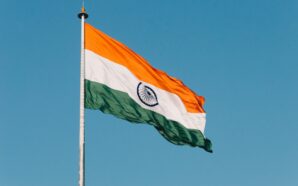The Organization for the Prohibition of Chemical Weapons (OPCW), which bans developing, producing, stockpiling and using chemical weapons, has been chosen for the prestigious Nobel Peace Prize for 2013.
As an intergovernmental watchdog, the 189-member OPCW, based in The Hague, is currently engaged in overseeing destruction of chemical weapons in Syria as well as making all production facilities and equipment unusable in the strife-torn nation by November 1. It’s after the UN Security Council took a decision to free Syria from chemical weapons in the wake of August’s dreadful gas attack in the country that the OPCW decided to take the responsibility of supervising the process of eliminating chemical weapons.
The Norwegian Nobel Committee selected the OPCW for the award even as popular names like that of Pakistani teenager Malala Yousafzai and Congolese gynecologist, Denis Mukwege, were being strongly tipped for the peace prize. While a majority of world nations have welcomed the decision to award the OPCW with the great honor, there are others who aren’t happy with the option and, therefore, see the ultimate winner as a surprise choice.
Defending Lives
Coming into existence in 1997 for the purpose of implementing the Chemical Weapons Convention, the OPCW has deputed a team comprising of about 30 arms experts, who join the UN logistics and security personnel to oversee the process of dismantling of the chemical arsenal in Syria, slated to be completed by mid-2014. While the procedure of destroying the chemical weapons production facilities have already taken off, Syrian television broadcasts footage of such works.
“The conventions and the work of the OPCW have defined the use of chemical weapons as a taboo under international law. Recent events in Syria, where chemical weapons have again been put to use, have underline the need to enhance the efforts to do away with such weapons,” the Nobel Committee observed.
Political Choice?
Notwithstanding the Nobel Committee’s remarks that the OPCW has not been picked for the peace award because of the recent gas attack in Syria that left more than 1,400 people, including children, dead, the OPCW winning the top prize will go a long way to highlight the potential dangers of chemical weapons in the world.
The Chemical Weapons Convention calls upon all its member states to enforce prohibition and destroy chemical weapons and/or facilities where their production take place. According to the OPCW, in June up to 80 percent of all declared chemical weapons have been eliminated and verified by the group.
Syrian leader Bashar al-Assad came in for a lot of praise, particularly from the US, when necessary steps were initiated to get rid of the chemical weapons arsenal. Also, Russia and the US came closer to brokering a deal that asked Syria to destroy all of its chemical equipment and the facilities where the arsenals are produced.
Although 16-year-old Malala, who unleashed a crusade against the Taliban, was considered to be a strong contender for the coveted peace prize, the general feeling was that the fresh death threats issued by the Taliban as well as her young age might have worked against her selection. However, on its part, the Nobel Committee clarified that no elections are held to decide the winner, and that the final choice is always the Committee’s prerogative.
Dodgers Push Out a Win to Avoid Elimination
-
The city of Dubai is reeling from the aftermath of historic torrential rains that inundated the desert metropolis, leading...
-
Plans for Neom’s ambitious “The Line,” a zero-carbon city in Saudi Arabia, have been revised, scaling back its initial...
-
In a significant escalation of the ongoing dispute over misinformation, Brazil Supreme Court Justice Alexandre de Moraes has initiated...
-
Mumbai Takes the Throne for the Most Billionaires in Asia In a historic milestone, Mumbai has overtaken Beijing to...
-
French President Emmanuel Macron emphasized the need for Western powers to remain vigilant in the face of the Ukraine...
-
The Philippines has strongly denounced what it described as “unprovoked acts of coercion and dangerous maneuvers” by China in...
-
As Moscow Prepares to Bid Adieu, Navalny’s Funeral Raises Uncertainties and International Allegations The spokesperson for Alexei Navalny has...
-
On the two-year anniversary of the ongoing conflict between Ukraine and Russia, there is much to reflect upon. Since...
-
The Office for National Statistics (ONS) released official figures on Wednesday, revealing that the United Kingdom posted a record...
-
Greece has become the first Christian Orthodox-majority country to legalize same-sex marriage, marking a significant step forward for LGBTQ+...
-
Massive Deflation in China as CPI Plummets by 0.8% China faces mounting challenges as its consumer prices spiral deeper...
-
3 Days of Consecutive Snowing Has Wreaked Havoc on Transportation As China prepares to celebrate the Lunar New Year,...



















